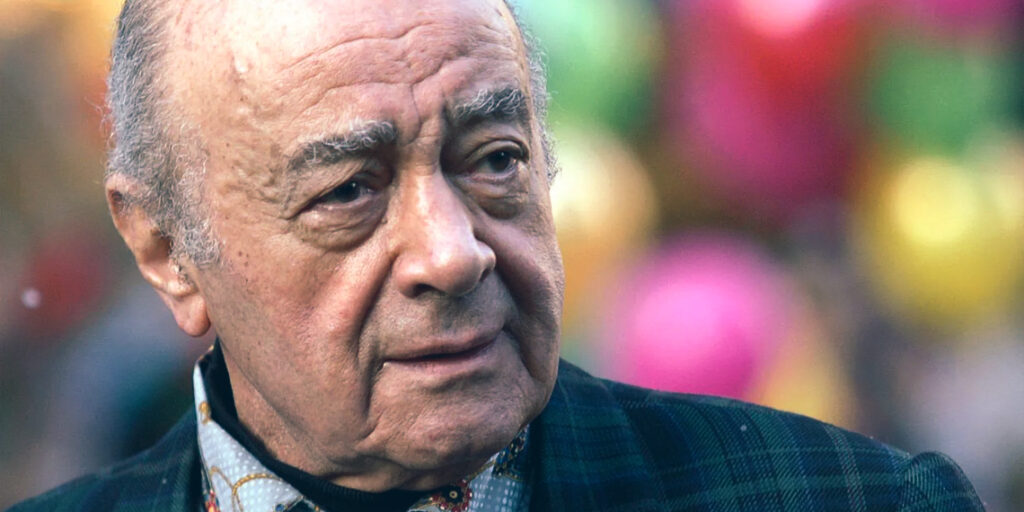Former employees of Harrods, London’s iconic department store, have shared shocking accounts of racism and abuse during Mohamed Al Fayed’s ownership. According to testimonies shared with the BBC, black staff members and others deemed to lack a specific “look” were systematically removed from the shop floor before Al Fayed toured the premises.
Allegations of Racial Profiling and Discrimination
Henry (a pseudonym), a former Harrods security guard, revealed that staff would receive a warning over their radios before Al Fayed appeared. This prompted a “robotic” exodus of black employees and others from the shop floor via underground tunnels. “The level of racism was very clear,” Henry told the BBC. Similarly, Lisa, a former HR employee, claimed overweight staff were also hidden from view during these tours.
Another former employee recalled black staff being sent to stockrooms or on extended breaks, while female employees were asked to apply makeup. Staff who remained visible during these visits were typically “young, thin, blonde,” Henry noted.
Abuse Allegations and Harrods’ Response
These claims follow a BBC documentary and podcast aired in September, which detailed accusations by more than 20 women alleging that Al Fayed sexually assaulted or raped them. In November, the Metropolitan Police launched an investigation into 90 additional complaints. Harrods issued a statement condemning Al Fayed’s actions, asserting that the organization has evolved significantly since his tenure.
A Toxic Workplace Culture
The toxic work environment reportedly extended beyond racism. Former staff described a culture of “paranoia, fear, and bullying,” where employees were regularly sacked with little notice. Anna, another HR staff member, claimed she was instructed not to hire black candidates because “the customers wouldn’t like it.” On one occasion, Al Fayed allegedly used a racial slur to describe the type of people he did not want employed.
A Legacy of Fear and Silence
Even years after leaving Harrods, Henry and others say they remain fearful of reprisals from Al Fayed’s former security team. Despite these fears, Henry urged former colleagues to come forward. “If they have daughters, granddaughters, or a mother, they should tell what they know.”
In response to these allegations, Harrods reiterated its condemnation of Al Fayed’s actions, acknowledging the failure to protect victims during his tenure. “While we cannot undo the past, we have been determined to do the right thing as an organization driven by the values we hold today.”


